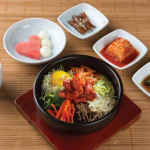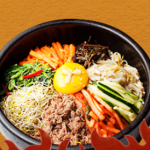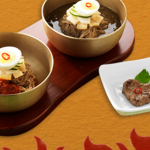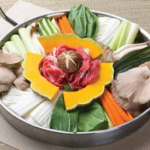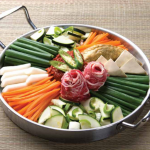Are you a Muslim traveler planning a trip to South Korea? Or maybe you’re simply curious about the delicious cuisine the country has to offer? Either way, you might be wondering, can Muslims eat most Korean dishes? Fortunately, the answer is yes! Korean cuisine offers a wide range of options that are halal-friendly, meaning they comply with Islamic dietary restrictions. In this article, we’ll explore the wonderful world of Korean food and highlight some popular dishes that Muslims can savor without any concerns.
Introduction to Korean Cuisine
Korean cuisine is well-known for its bold flavors, vibrant colors, and diverse ingredients. From spicy dishes to savory delights, Korean food has a unique personality that sets it apart from other Asian cuisines. Rice, vegetables, tofu, fish, and meat are staples in many Korean meals, making it a gastronomic adventure worth exploring.
Muslim-Friendly Ingredients in Korean Dishes
-
Rice: The staple food in Korea is rice (beras). Muslims can enjoy various rice dishes like Bibimbap, a mixed rice bowl filled with vegetables, meat (if desired), and a spicy sauce called Gochujang. Bulgogi, a grilled marinated beef, can also be relished with rice.
-
Tofu: Dubu (tofu) is a popular ingredient in Korean cuisine. Whether it’s in a spicy stew called Kimchi Jjigae or a flavorful side dish like Dubu Jorim, tofu is a versatile protein option for Muslims to savor.
-
Vegetable-based Dishes: Vegetables play a vital role in Korean cooking. From savory pancakes like Jeon to refreshing salads like Namul, there are numerous vegetarian-friendly dishes for Muslims to indulge in.
-
Meat and Seafood: While pork is heavily used in some Korean dishes, there are plenty of options available for Muslims who consume halal meat. Look out for dishes like Dakgalbi (spicy stir-fried chicken) and Samgyetang (ginseng chicken soup). Seafood lovers can try dishes like Haemul Pajeon (seafood scallion pancake) or Grilled Fish (godeungeo-gui).
Food to be Cautious of
Although Korean cuisine offers a variety of halal-friendly options, there are a few dishes that Muslims need to be cautious about due to non-halal ingredients. Some of these include:
-
Kimchi: While most kimchi varieties are vegetarian-friendly, some may contain fermented shrimp or fish sauce. It’s advisable to check the ingredients or opt for homemade kimchi.
-
Soups and Stews: Korean soups and stews often use anchovy or seafood-based broth as a base. Ensure to clarify with the restaurant or chef whether the soup is prepared without these ingredients.
-
Banchan: Banchan refers to the various side dishes served with a Korean meal. Some side dishes may contain non-halal ingredients, such as fish sauce or oyster sauce. Be cautious and inquire about the ingredients used, especially if dining at a local restaurant.
Muslim-Friendly Korean Restaurants
Finding Muslim-friendly restaurants in South Korea may require some research. Here are a few recommendations to get you started:
- Busan Mosque Halal Restaurant (Halal-certified)
- Location: Busan
-
Cuisine: Korean, Indian, Middle Eastern
-
EID Halal Korean Food (Halal-certified)
- Location: Seoul
-
Cuisine: Korean, Middle Eastern
-
Makan Halal Restaurant (Halal-certified)
- Location: Jeju Island
- Cuisine: Korean, Malaysian, Indonesian
Embrace the Cultural Experience
Exploring Korean cuisine as a Muslim traveler adds a new dimension to your cultural experience. By sampling halal-friendly Korean dishes, you not only satisfy your taste buds but also deepen your understanding of the country’s traditions and customs. So, during your visit to South Korea, don’t miss the chance to embark on a culinary adventure that caters to your dietary needs and opens up a world of flavors.
Frequently Asked Questions (FAQs):
- Are Korean dishes generally halal-friendly?
-
Korean cuisine offers a wide range of halal-friendly options, but some dishes may contain non-halal ingredients. It’s important to check the ingredients or clarify with the restaurant.
-
Can Muslims eat Kimchi?
-
Most kimchi varieties are vegetarian-friendly, but some may contain fermented shrimp or fish sauce. It’s advisable to check the ingredients or opt for homemade kimchi.
-
Are there any Muslim-friendly Korean restaurants in South Korea?
-
Yes, there are several Muslim-friendly restaurants in South Korea that offer halal-certified or halal-friendly options. Do some research before your trip or ask locals for recommendations.
-
Can Muslims enjoy Korean BBQ?
-
Korean BBQ often includes pork, which is not permissible for Muslims. However, some restaurants offer alternatives like beef or chicken options that Muslims can enjoy.
-
What are some popular Muslim-friendly Korean dishes?
- Some popular Muslim-friendly Korean dishes include Bibimbap, Bulgogi, Dakgalbi, and Samgyetang. These dishes can be enjoyed with rice and are available in many Korean restaurants.
Now that you know Muslim travelers can savor most Korean dishes without any worries, it’s time to plan your culinary adventure in South Korea. Enjoy the blend of flavors, appreciate the cultural experience, and create lasting memories through the exploration of Korean cuisine. Selamat menjamu selera! (Enjoy your meal!)

